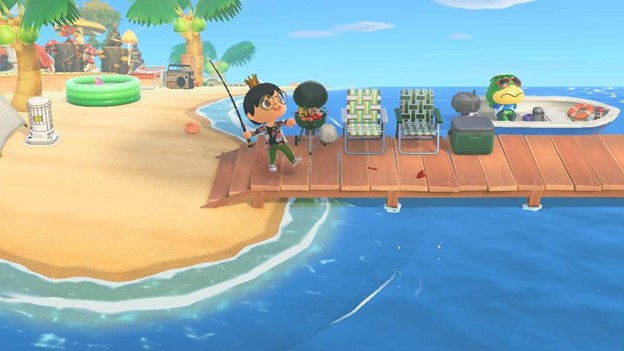As a queer, crip, genderfluid, and diasporic Pilipinx scholar-activist-educator, my ancestors, communities, and I live at the intersections of multiple sites of oppression and resistance. As someone who is sick, disabled, and neurodivergent, I experienced anxiety, depression, and chronic bodymind pain before the pandemic and even more during the pandemic. Nintendo Switch’s Animal Crossing New Horizons (ACNH) video game kept me afloat during uncertain times. ACNH opened up a whole new alternative universe for me to live in. I meditated more when escaping to my scenic and calming virtual island. I relaxed more when fishing, catching butterflies, and hearing the tranquil ocean waves crash within the game. Building my dream world within my ACNH virtual game contributed to me surviving and fostering deeper friendships with fellow sick, disabled, neurodivergent, queer, transgender, Black, Indigenous, and/or people of color (BIPOC) friends. ACNH became a safe way for us to socialize and it continues to be a source of joy for many of us. I highlight how my experiences with ACNH allowed me to cultivate queer, crip, and decolonial Pilipinx Kapwa dream worlds where all beings including people, animals, land, water, and air thrive together.
Articles by Pau Abustan
Pau Abustan (they/siya) is an Assistant Professor in Cal State LA’s Women’s, Gender, and Sexuality Studies Department (WGSS). Their research centers queer critical race feminist disability justice dream worldmaking in youth learning, youth popular culture animated storytelling, and youth-led coalitional activisms. They co-facilitated intersectional coalitional activisms in California (Tongva/Chumash lands) and cofounded a two-spirit, transgender, and queer BIPOC-led organization in Washington (Niimiipuu lands). They formerly taught with Western Washington University’s WGSS, Highline College’s Ethnic and Gender Studies Department, University of Washington’s Education and Disability Studies Department, and Washington State University’s WGSS and Cultural Studies in Education Department. They are working on their first book reflecting upon their experiences as a queer, crip, and decolonial Pilipinx cripnographer witnessing youth-led disability justice worlds and lessons in an elementary school classroom.
